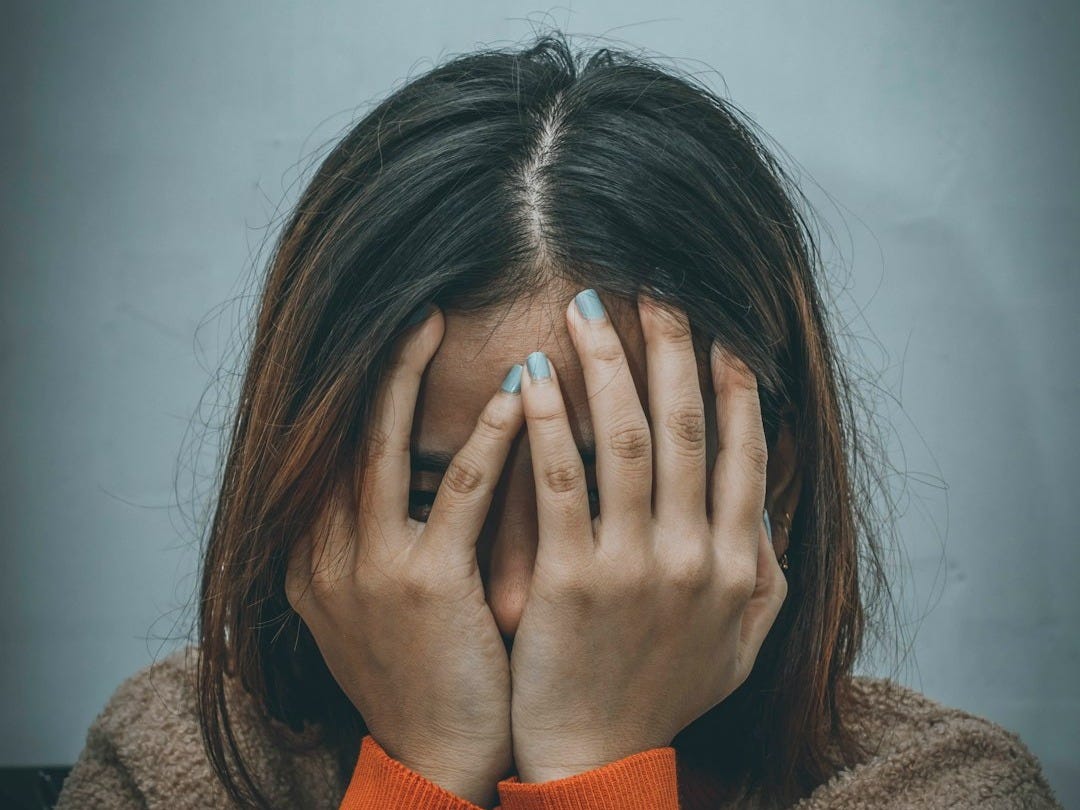The Two Words That Teach Girls to Disappear
My son hit my daughter. She immediately said the two words that stopped me cold. Words I'd probably said a thousand...
My son hit my daughter. Just the way siblings do when they’re fighting over the remote.
I made him apologize. “I’m sorry for hitting you,” he said, looking at his feet.
And before I could even process what happened, she said: “It’s okay.”
“No,” I said immediately. “It’s not okay. Hitting is not okay.”
She looked confused. “But he said sorry.”
“Yes, and you can accept his apology. But you don’t have to say it’s okay. Because it’s not.”
I realized I was witnessing something that I needed to stop right away.

I read two parenting books from a counseling clinic—one on parenting boys, one on parenting girls. Same authors, different books for different challenges.
In Sissy Goff’s book “Raising Worry-Free Girls,” there was a line that changed how I saw everything: “When something goes wrong in a girl’s world, she usually blames herself. (Boys are more likely to blame someone else.)”
When something goes wrong, boys will blame the teacher, the coach, the weather, their sibling, anyone but themselves.
Girls? They take it all in. They assume it’s their fault. They say “I’m sorry” for things they didn’t do. They accept blame that doesn’t belong to them.
The recognition hit me hard: I was watching this play out in my own home.
My son will blame everything. He’ll blame his sister for distracting him. He’ll blame me for not reminding him. He’ll actually blame the weather.
I find myself constantly asking: “Where did you learn this? What show taught you to deflect responsibility?”
Meanwhile, my daughter says things like “I’m stupid” and “It’s my fault” and immediately accepts blame for things that aren’t her responsibility.
I didn’t teach this. My husband didn’t teach this. But somehow, they both learned it anyway.
That’s the power of socialization.
When my daughter says “it’s okay” after her brother hits her, she’s not just accepting his apology. She’s learning that:
Her discomfort doesn’t matter as much as his feelings
It’s her job to make him feel better about hurting her
Minimizing harm is more important than acknowledging it
Being “nice” means pretending things don’t hurt when they do
Those lessons don’t stop in childhood.
The woman who says “it’s okay” when her partner is consistently late, consistently dismissive, consistently putting her needs last? She learned that script as a little girl.
The employee who says “it’s okay” when her boss takes credit for her work? She learned to minimize harm early on.
The friend who says “it’s okay” when someone repeatedly cancels plans? She’s been practicing that response since she was seven.
“It’s okay” isn’t just about accepting an apology. It’s about learning that your hurt doesn’t deserve acknowledgment.
The renewal came in teaching different scripts in real-time.
Now when my son apologizes, I teach my daughter to say: “Thank you for apologizing.”
That’s it. Not “it’s okay.” Not “don’t worry about it.” Just acknowledging the apology without minimizing what happened.
Sometimes I’ll have her say: “I accept your apology, but don’t do that again.”
That’s setting a boundary. Acknowledging both the apology and the fact that behavior needs to change.
As an adult, I want her to be able to say: “I appreciate your apology, but that really hurt me, and I need you to understand why.”
Or: “Thank you for saying sorry. I need some time before I’m ready to move past this.”
Or even: “I hear your apology, but this keeps happening, and I need to see actual change.”
None of those responses require her to say something is okay when it’s not.
And the parallel work with my son: teaching him that an apology doesn’t erase what he did.
He doesn’t get to hit his sister and feel instantly absolved because he said sorry. He has to sit with the discomfort of having hurt someone. “Sorry” is the beginning of repair, not the end of accountability.
I won’t let him off the hook just because he apologized. And I won’t let her minimize the harm just to make him feel better.
My daughter is learning that she can accept an apology without pretending everything is fine. She’s learning her feelings matter. She’s learning it’s not her job to make people feel better about hurting her.
My son is learning he’s responsible for his actions. That he can’t just blame external factors. That an apology requires changed behavior, not just words.
But here’s the truth: This is work I have to do actively, constantly, in real-time.
I can’t prevent socialization from happening. It’s everywhere—every TV show, every playground interaction, every cultural message about how boys and girls should behave.
But I can interrupt it the moment I see it.
Every time I hear “it’s okay” when something isn’t okay, I stop and correct it. Every time my son blames external factors, I bring it back to his responsibility. Every time my daughter starts to apologize for something that isn’t her fault, I interrupt that pattern.
It’s exhausting. It’s constant. But it’s necessary.
Because I know what happens to little girls who learn to say “it’s okay” when things aren’t okay. They become women who minimize their own hurt, who smooth over their own boundaries, who make themselves smaller so other people can feel comfortable.
And I’m not raising that woman.
Your reflection work this week:
Notice when you say “it’s okay” when things aren’t actually okay. Catch yourself minimizing harm just to keep the peace.
Practice saying “Thank you for the apology” without adding “it’s okay” or “don’t worry about it.”
If you have daughters, listen for how often they say “it’s okay” or “I’m sorry” for things that aren’t their responsibility. Start interrupting those patterns.
If you have sons, listen for how often they blame external factors. Teach them that accountability isn’t shame—it’s honesty about impact.
These are small interventions. But they’re teaching entirely different scripts about worth, boundaries, and responsibility.
Related perspectives:
Creating a Healthier Environment: Using the Gray Rock Method to Prioritize Well-being
Embracing the Art of Receiving: Cultivating Self-Worth & Balance
“It’s okay” should only be used when things are actually okay.
With love and light,
A few friendly notes: Client names are always changed to protect privacy. This newsletter may contain affiliate links to products I genuinely love and use myself. While I'm a licensed therapist, this content is for educational purposes and isn't medical advice - think of it as a conversation with a friend who happens to know about mental health. For personalized support, always consult your healthcare provider.



